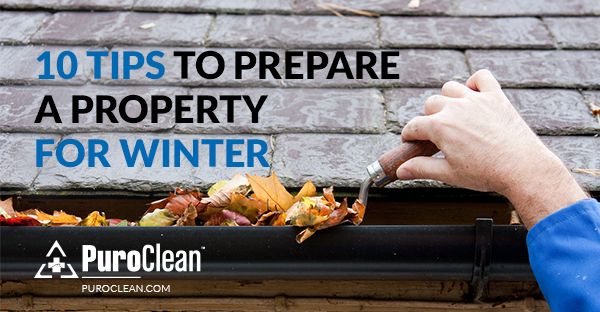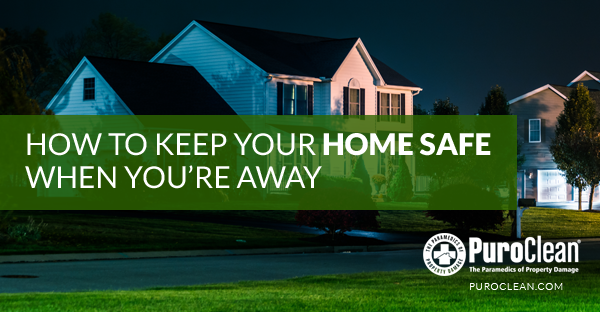 Even though winter is in full swing in many areas of the country, it’s not too late for some preparedness actions. Ted Porter, PuroClean franchise owner in Lanham, Maryland, has put together a list of some of the best tips to winterize your property:
Even though winter is in full swing in many areas of the country, it’s not too late for some preparedness actions. Ted Porter, PuroClean franchise owner in Lanham, Maryland, has put together a list of some of the best tips to winterize your property:
- Clear the gutters, downspouts and flat-roof boxes of leaves and debris, to encourage proper drainage.
- Check the attic insulation where the attic floor meets the roof line, to protect the eaves.
- Insulate at roof penetrations in the attic, to discourage heat loss. Use spray foam.
- Drain the line to the exterior hose faucet. Cover the faucet with a “faucet sock.”
- Place “ice melt” bags near walkways. They are eco-friendly options that don’t harm plants or pets.
- Know where your shut-off valves are located. If a pipe does burst, a resident can stop the flow of water into the home.
- Insulate pipes located in the garage, because if the garage door is left open, they will freeze.
- Test the smoke alarms before using burners and replace the batteries every year.
- Let faucets trickle on cold nights. This will keep pipes from bursting, even if they do freeze.
- In a chronically damp closet, install a light bulb to always be “on,” to provide a little heat and drying. This is also useful inside pianos, to stabilize the environment.
Consider installing:
- Heat tape along pipes in spaces that aren’t heated, like sprinkler lines in the attic.
- Moisture detectors
- Spot detectors. They typically have two sensors that require moisture to come in contact with in order to activate the alarm. Think about where water is most likely to come FROM and the path it is likely to take and place the sensor in that path. It is most useful under appliances like refrigerators with ice-makers and hot water heaters.
- Area detectors. They use a sensor wire that can be many feet in length and allow extensions and even multiple sensor wires. The alarm is activated when moisture comes in contact with any portion of the sensing wire. These typically cost two to three times more than a spot detector, but the area they can cover is much larger, therefore providing a greater level of protection. Moreover, area detectors can set off a loud alarm or can be tied into your home automation system to send you a text alarm.
Tips for unoccupied or vacation properties:
- Keep the thermostat to a minimum of 55 degrees, to protect the bathroom and kitchen plumbing that is normally not insulated.
- Empty the refrigerator and fill it with crumpled newspapers to absorb any odors.
- Hire someone to walk each room twice a week.
- Tell the local police that your property is empty or the frequency of occupation (weekends, holidays, empty until spring, etc.).
- Drain the system, drain and fill with antifreeze, or at least add antifreeze to all sinks and toilet tanks and bowls.



 PuroClean of Aventura
PuroClean of Aventura